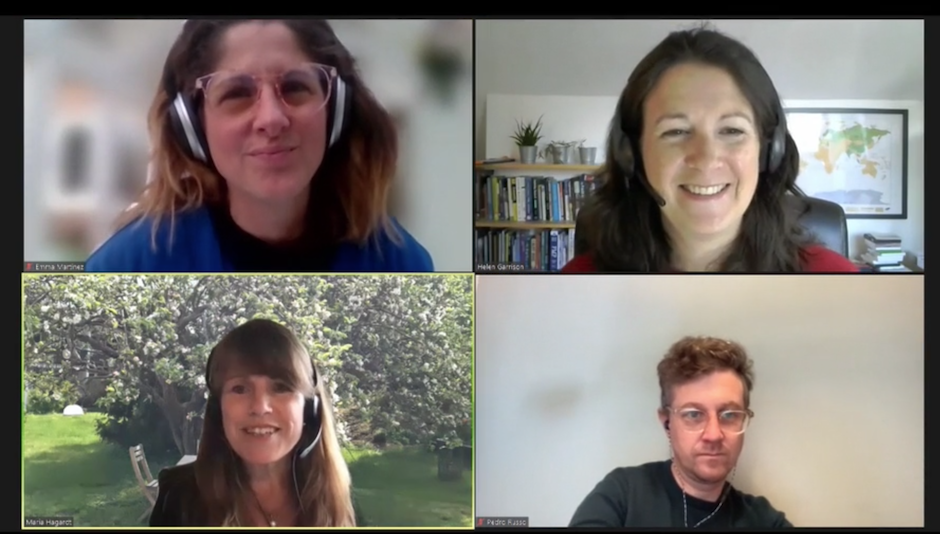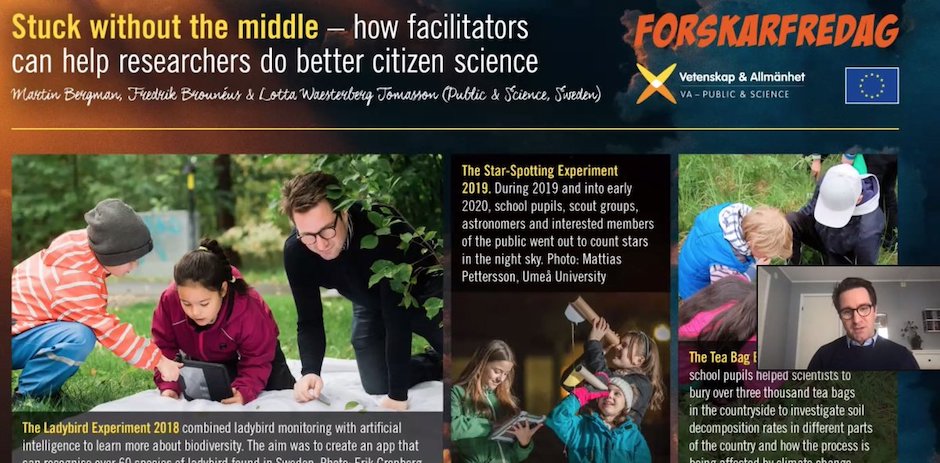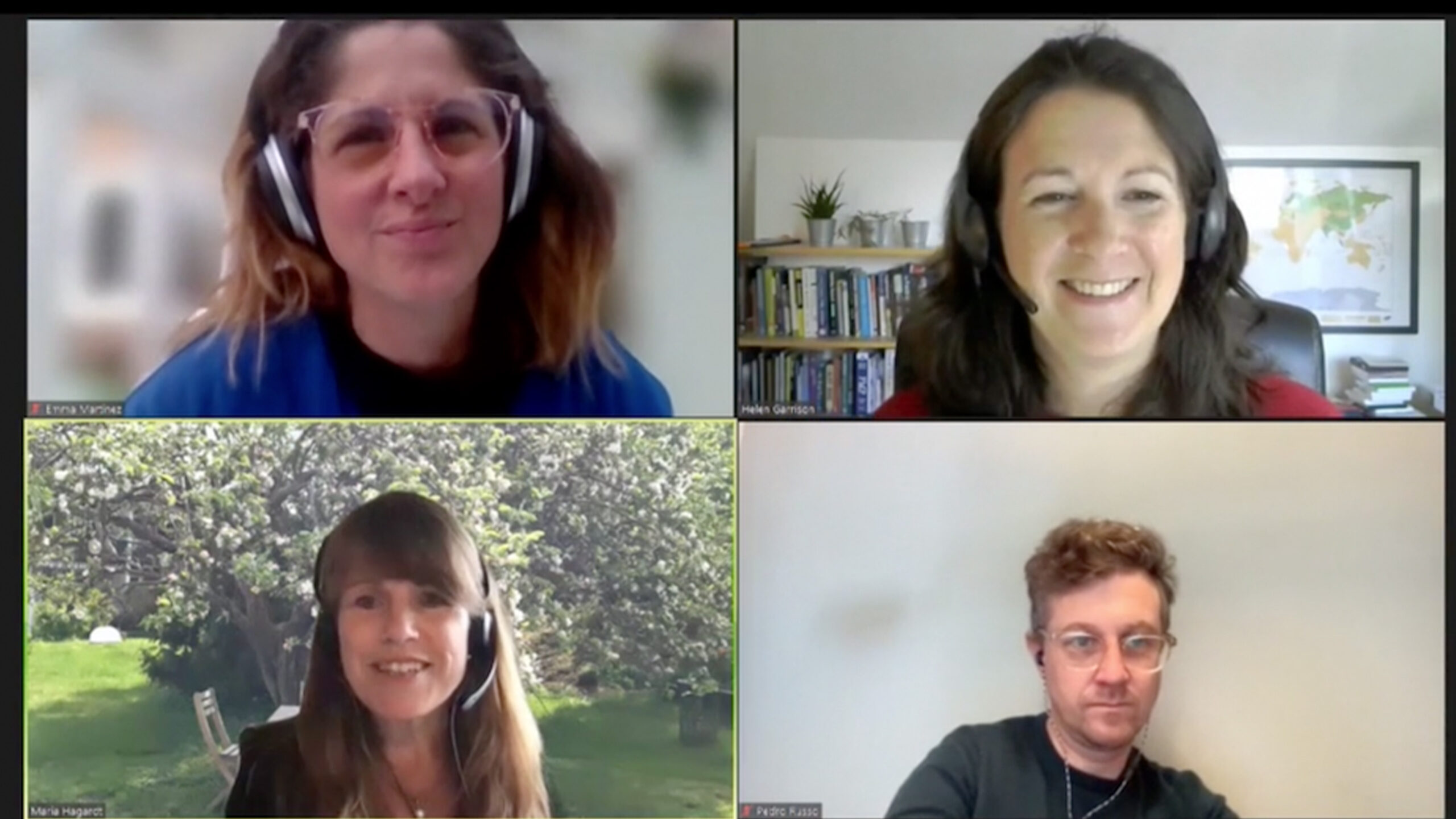This year’s online PCST conference provided VA with an opportunity to showcase the results of a number of its studies and public engagement and open science projects. VA’s contributions included visual presentations, insight talks and a roundtable discussion to delegates participating from numerous time zones across the globe.

The Covid-19 pandemic was unsurprisingly a key theme addressed throughout the conference in late May 2021. Barbara Saracino from Observa Science in Society presented joint results from Italy, Germany and VA’s ongoing study on how the pandemic is being communicated in the media at a session exploring communication behaviour and science attitudes during the pandemic. The session also included presentations with perspectives from Israel, India and Finland and was followed by an inspiring discussion.
Researchers’ conditions for engaging in science communication were addressed in a session where VA’s Gustav Bohlin shared the findings of a large survey of 3,700 researchers at Swedish universities. In general, Swedish researchers have positive attitudes to communicating their research with the outside world, and the results reveal several perceived internal and external barriers as well as different types of support needed to engage in communication activities. Perspectives from China, Italy and Finland were shared in other presentations at the session.
The public’s views of humanities research was the focus of Martin Bergman’s insight talk, where he presented findings from another VA study revealing that the attitudes are very different depending on the research field. Public confidence in research in the humanities is much lower than, for example, medicine or natural sciences. Many Swedes are also unable to express an opinion about their confidence in humanities research compared to medicine, natural sciences and technology. Reasons behind this are now being investigated in an ongoing three year project.

Putting Open Science into practice
Open Science was the theme of two VA sessions. In “Open Sesame! What do researchers think of Open Science”, Gustav Bohlin shared the results of a study conducted by VA in 2019 with researchers at Swedish universities about their understanding/awareness of open science as well as their concerns and hopes. The discussion that followed centered around the heterogeneity of researchers and how attitudes differ between, for example, junior/senior researchers, male/female, or different research areas.
VA’s roundtable session on ‘Engaging the Public through Open Science – Putting theory into practice’ showcased practical examples of methods and activities for engaging the public in the research process. Examples highlighted included co-creation formats and methodologies, citizen science approaches, gamification, and public and multi-stakeholder dialogues.
VA’s Maria Hagardt presented some of VA’s projects aimed at engaging young people in science, including the annual Researchers’ Night mass experiments, the EU YouCount project addressing social inclusion plus a serious game on the bioeconomy being developed by AllThingsBio.
Pedro Russo from Leiden University highlighted the work of the Citizen Science Lab at Leiden University in the Netherlands, to engage communities in tackling local issues. He also spoke about the school-led community development approach being used by Open Science Hubs in a number of countries. The work of the Horizon 2020 ORION Open Science project was also shared by Emma Martinez from the Babraham Institute in the UK, who showcased learnings from the public dialogues and other co-creation experiments.
Following short presentations, delegates were invited to share their own experiences of putting open science into practice in a breakout area of the PCST platform. Discussion focused around incentives for researchers to undertake citizen engagement activities plus the challenges of engaging a diverse range of participants, particularly in certain fields.
VA’s Secretary General and President of EUSEA, Cissi Askwall, also chaired a workshop organised by EUSEA to collate input to inform the development of a new European Science Engagement Platform. The platform will act as a source of advice and inspiration for those involved in science communication and public engagement.
All the sessions from the PCST 2020+1 conference were recorded and are available to watch until May 2020 at the conference web platform.
PCST – the Public Communication of Science and Technology Conference is held every two years. The next PCST conference will be held in Rotterdam, The Netherlands in April 2023.

